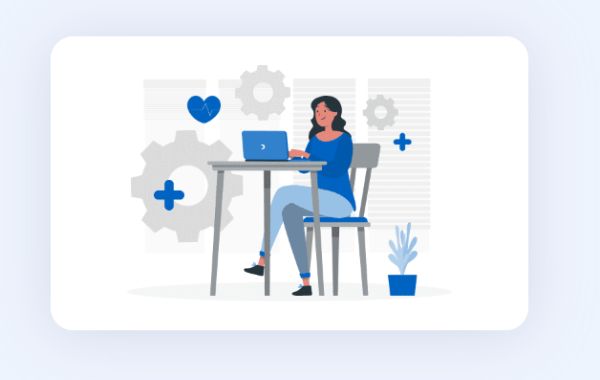At the forefront of this revolution are medical software developers, who, through their innovation and expertise, are spearheading the healthcare technology sector. This article explores the pivotal role of medical software developers and their pioneering contributions to healthcare technology.
A Digital Renaissance in Healthcare
Historically, healthcare has been closely linked with manual processes, paper records, and data fragmentation. However, the advent of cutting-edge technology has ushered in a new era for the healthcare sector. Medical software developers specialize in creating customized software solutions that are tailored to address the specific needs and challenges faced by healthcare providers and organizations.
Electronic Health Records (EHRs): The Digital Backbone of Healthcare
Among the many impactful contributions of medical software developers is the creation and implementation of Electronic Health Records (EHR) systems. These digital platforms have replaced traditional paper records, providing healthcare professionals with secure and immediate access to comprehensive patient information. EHRs streamline workflows, reduce administrative burdens, and enhance communication among healthcare teams, ultimately leading to more efficient and patient-centered care.
Furthermore, EHR systems promote interoperability, allowing different healthcare facilities and providers to seamlessly exchange patient data. This ensures continuity of care, reduces duplication of medical tests and procedures, and enhances the overall patient experience.
Telemedicine: Bridging Geographic Divides
The rapid ascent of telemedicine, accelerated by global events such as the COVID-19 pandemic, has brought about transformative improvements in healthcare accessibility. Medical software developers have played a pivotal role in developing telemedicine platforms that enable virtual consultations, secure messaging, and electronic prescriptions. These platforms transcend geographical barriers, offering patients in remote or underserved areas unprecedented access to healthcare services.
Telemedicine solutions continue to evolve with features such as AI-powered symptom assessment and remote patient monitoring, thereby enhancing the patient experience and improving healthcare outcomes.
Unlocking the Potential of Artificial Intelligence (AI)
Medical software developers are harnessing the immense potential of Artificial Intelligence (AI) to optimize patient care. AI algorithms can analyze vast datasets, detect patterns, and provide healthcare professionals with real-time insights. AI-driven diagnostic tools have the potential to significantly improve the accuracy and speed of diagnoses, ultimately leading to better patient outcomes.
AI is also being integrated into healthcare chatbots and virtual assistants, offering immediate responses to patient inquiries, scheduling appointments, and providing medication reminders. These innovations not only improve patient engagement but also streamline administrative tasks, allowing healthcare providers to allocate more time to patient care.
Prioritizing Data Security and Regulatory Compliance
In an era of heightened data sensitivity and stringent regulatory requirements like HIPAA (Health Insurance Portability and Accountability Act), medical software developers are committed to addressing data security concerns. They design robust cybersecurity solutions, encompassing encryption, multi-factor authentication, and regular security audits, to safeguard patient data and ensure compliance with regulatory requirements.
Conclusion
Medical software developers stand as pioneers of innovation in modern healthcare, introducing solutions that empower both patients and healthcare providers. Through the development of EHR systems, telemedicine platforms, AI-driven tools, and cybersecurity measures, they are reshaping healthcare into a more efficient, patient-centric, and accessible system.
As technology continues to advance, the contributions of medical software developers will remain instrumental. The future promises even more groundbreaking solutions, ultimately leading to improved patient outcomes, enhanced healthcare accessibility, and a healthcare system that genuinely prioritizes excellence. In collaboration with medical software developers, the healthcare industry is poised for a future where innovation in healthcare technology continues to advance patient-centered care.








